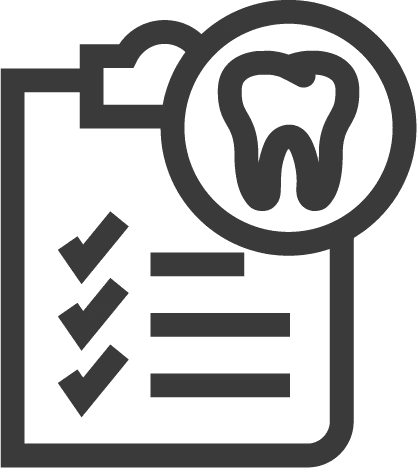
.avif)
To begin, you’ll have a conversation with your dentist TMJ specialist, Dr Greenslade, and discuss the pain that you’re experiencing, as well as other symptoms like jaw “popping” or “clicking,” facial soreness, lockjaw, and any other issues that may be affecting your jaw and your mouth.

Dr. Greenslade will provide you with a comprehensive exam, which typically includes jaw x-rays or panoramic x-rays to examine the health and position of your jaw and the other structures of your face. After evaluating all the information, he will determine if TMD is the issue.
.avif)
After diagnosis, Dr. Greenslade will provide you with a treatment plan. This could include lifestyle changes, as well as treatment with a night guard for teeth grinding or an oral appliance that will help adjust the position of your jaws and encourage healing while you sleep.

Throughout you consultation, Dr. Greenslade will use a variety of technology to evaluate your TMJ. This includes a T-scan, doppler auscultation, intra-oral scans, and CBCT imaging.
The symptoms of TMD vary quite a bit depending on the patient. You may experience issues like:
If you notice any of these symptoms, we recommend scheduling an appointment Honor Dental right away to get help.
TMD and TMJ pain is caused by a variety of different issues:
Because TMD and TMJ pain can be caused by so many different health issues, it’s important to see an experienced dentist, like Dr. Greenslade, when seeking care.
Some cases of mild TMD may go away on their own with lifestyle changes, such as ceasing gum chewing, de-stressing to eliminate teeth clenching, and more. However, if you suffer from the symptoms of TMD for more than a week or two, your condition may be chronic. To learn more about your specific case of TMD, it’s best to seek assistance from the experience team atHonor Dental to get the help you need.
There are a few steps you can take to treat TMJ pain on your own. Jaw exercises may help strengthen the jaw muscles and joints, which can help provide you with relief from the effects of TMD.
In addition, applying hot and cold compresses to the area at 10-minute intervals can help with inflammation and control the pain and discomfort of TMD as your jaw heals.
It’s also a good idea to take steps to decrease jaw clenching, such as exercising and de-stressing to reduce the likelihood of nighttime teeth grinding. You may also want to consider ceasing gum chewing, and eating a diet of mostly soft foods to minimize the work your jaw muscles must do while they heal.
You can also use over-the-counter medicines like ibuprofen and acetaminophen to help control pain and inflammation as your jaw heals, and you recover from TMD.
While some cases of TMD are minor and can be resolved with these simple steps and other at-home remedies, you should consider seeking help if you experience serious pain and discomfort, or if your symptoms persist for 1-2 weeks or longer.